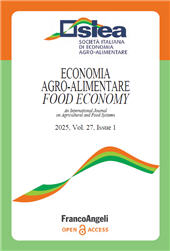Understanding consumers' willingness to use omega-3 enriched eggs
135-189 p.
One of the most important consumer trends in the food sector is the increasing popularity of nutritionally enriched food product consumption, especially omega-3 enriched foods. This study examines the consumers' willingness to consume omega-3 enriched eggs and applies the Health Belief Model (hereinafter: HBM). An online survey was conducted on a representative sample of 524 Croatian consumers who do grocery shopping for their households and purchase eggs. The data was collected from a representative panel using quota sampling by gender and age and analyzed using SEM by Partial Least Square. The results show that almost 3/4 of the respondents do not know what omega-3 enriched eggs are. The perceived benefits, selfefficacy, cue to action and health motivation have a positive impact on the willingness to use omega-3 enriched eggs.Contrarily, the effects of threat perception variables (perceived severity and perceived susceptibility) and barriers on the willingness to use omega-3 enriched eggs are not
significant.The results could support the efforts of the producers and the authorities to develop strategies that promote the consumption of omega-3 enriched foods, especially eggs. [Publisher's text]
Is part of
Economia agro-alimentare : XXVII, 1, 2025-
Articles from the same issue (available individually)
-
Information
ISSN: 1972-4802
KEYWORDS
- functional foods, omega-3 enriched eggs, consumers, health belief model


